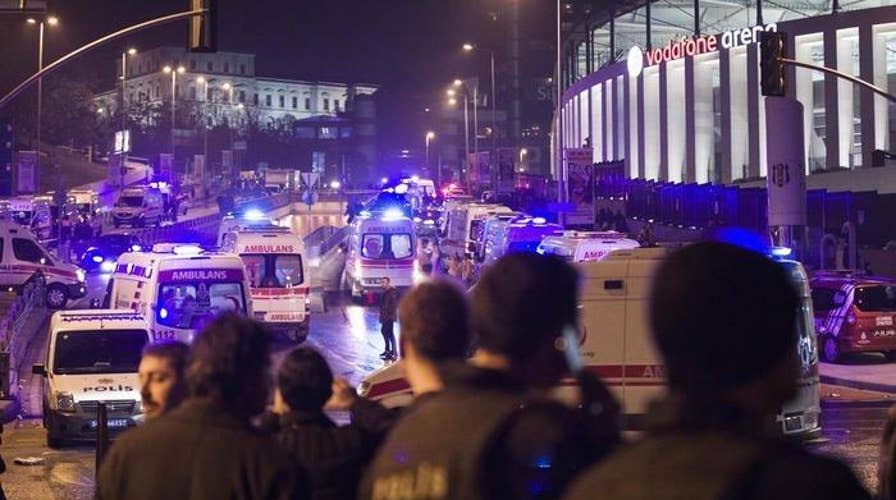Two coordinated explosions target police in Turkey
Officials say blasts were caused by a car bomb and suicide vest
ISTANBUL – Police detained dozens of individuals linked to a Kurdish opposition party in country-wide raids, Turkish state media reported Monday.
The reports did not specify whether the individuals detained were suspected of involvement in a Saturday bombing that killed at least 44 people and wounded 155 others.
That figure includes 36 police officers and eight civilians, according to health minister Recep Akdag, who was quoted by state-run Anadolu Agency.
The state-run news agency said at least 37 members of the pro-Kurdish Peoples' Democratic Party, or HDP, were detained early Monday in Istanbul and the capital, Ankara.
The state-run television channel TRT reported similar dawn raids, saying 58 were detained in the port city of Mersin and 51 in Sanliurfa in the southeast. All were rounded up for alleged terrorism links.
President Recep Tayyip Erdogan and other Turkish authorities accuse the HDP of supporting terrorism and having ties to the outlawed Kurdistan Workers' Party, or PKK.
That is a charge the party, which was democratically elected into parliament in 2014, denies. Its two leaders are currently behind bars on terrorism-related charges.
Turkey, which is facing renewed conflict with Kurdish rebels in the southeast and has suffered a string of attacks related to the Islamic State group, is facing major security challenges.
A state of emergency was decreed in the wake of a failed July 15 coup attempt which the authorities blame on a U.S.-based Islamist cleric.
That measure and the sweeping purges of state institutions that followed have alarmed Western governments, human rights group and legal experts.
Turkey's campaign against armed Kurdish militants in the southeast has also drawn criticism over the disproportionate use of force and the displacement of thousands of individuals.
A Turkey-based Kurdish faction, known as the Freedom Falcons Movement, claimed responsibility for twin bombings that struck shortly after the conclusion of a soccer match.
Known as TAK, the shadowy group is considered as an offshoot of the PKK. It has also claimed two suicide bombing attacks in Ankara this year.
The group says its actions are revenge for state violence in the southeast and for the ongoing detention of Abdullah Ocalan, the PKK leader and ideologue.
The PKK and the Turkish state have been locked in a decades-long conflict that has killed tens of thousands. Violence resumed between them after the collapse of peace talks in 2015.







































